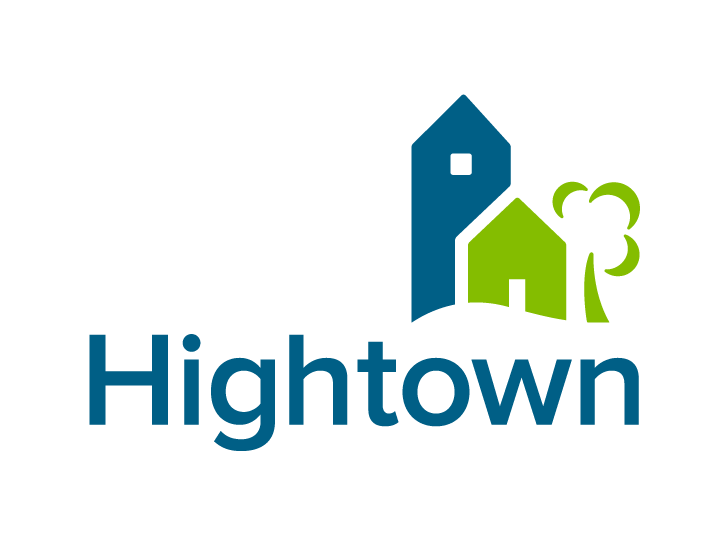Modern Slavery Statement
Introduction
This statement is made in accordance with Part 6 Section 54 (1) of the Modern Slavery Act 2015 and constitutes Hightown Housing Association's (Hightown) modern slavery statement.
Hightown operates a zero-tolerance policy towards slavery and human trafficking and will take steps to prevent it occurring in our supply chains or in any part of our business. This statement has the support and approval of our Board. Managers and staff are expected to report any reasonable suspicion that slavery and human trafficking may be taking place.
About Hightown
Hightown is a charitable housing association registered under the Co-operative and Community Benefit Societies Act 2014. Hightown operates entirely in England and almost exclusively in highly regulated sectors. Many of its contracts are with public sector organisations. Other than in very rare circumstances, Hightown sources all of its goods and services from UK based suppliers.
Hightown's policies reflect our commitment to acting ethically and to implementing robust systems and controls to ensure that slavery and human trafficking is not taking place in our supply chains. A number of policies contribute guarding against modern slavery, and we review these on a regular basis:
- Safeguarding Adults and Children Policy
- Confidential Reporting (Whistleblowing) Policy
- Equality & Diversity Policy
- Anti-bribery Policy
- Recruitment Policy
- Procurement Policy
- Code of Conduct
- Anti-bullying, Harassment and Victimisation Policy
- Health & Safety Policy
- Conflicts of Interest Policy
Our Supply Chains
Hightown expects its suppliers not to use slave labour or engage in human trafficking and requires all new suppliers to confirm this by submitting their tender or by a statement that they are not in breach of the Modern Slavery Act. Our tender documentation includes a provision for the mandatory exclusion of any bidder convicted of an offence under sections 1, 2 or 4 of the Modern Slavery Act 2015. Hightown may instruct its agents to conduct checks of key suppliers where there are suspicions that there may be non-compliance with the legislation. Should a breach be identified, Hightown may provide the supplier with an opportunity to rectify the problem and implement a corrective action plan but reserves the right to remove the supplier from its supply chain.
Construction labour suppliers are particularly susceptible to modern slavery, and clearly form an integral part of our supply chain. Our development contracts include a clause requiring compliance with the Modern Slavery Act. Our contractors are expected to notify us if they have been in breach of the Act.
With a large portfolio of care and support services and the national challenge of recruiting and retaining staff, Hightown is reliant on recruitment agencies for the provision of temporary staff in order to provide the required levels of service within our schemes. Agency staff are often taken on at short notice to fill gaps as required. Although we conduct due diligence on the agencies used, this still reduces our control over how these staff are sourced.
Safeguarding
We have safeguarding policies and procedures in place to guard against the risk that our tenants or service users are or become victims of slavery or human trafficking. We have appointed two Safeguarding Lead Officers and have procedures in place for reporting any safeguarding issue including suspicion of modern slavery.
Training
We take steps to ensure staff are aware that safeguarding is everyone's responsibility and that staff have the training they need to be able to identify and report modern slavery if they suspect it.
All staff have access to E Learning covering Modern Slavery and Human Trafficking and are pointed to the Modern Slavery website www.modernslavery.co.uk to gain further information about types of slavery, signs to spot, online or telephone reporting and referral processes for victims. We have publicised the International Labour Organisation's indicators of forced labour on our intranet to alert staff to possible signs of forced labour.
Recruitment and Work Practices
Hightown's recruitment processes fully comply with the Modern Slavery Act 2015, with checks on documents such as passports and other forms of identification being carried out routinely. Where the use of temporary staff is required, only specified, reputable agencies are used. The Association's Declarations of Interest Policy has been revised to strengthen the controls against the potential of victims of forced labour entering the workforce. An Internal Audit scrutinised our existing practice and we were not required to increase the controls in place to guard against modern slavery risks.
All Hightown employees are treated fairly and equally, and we commit to paying the Living Wage as far as possible. Salary payments are made directly to employees bank accounts. Our employees will not be forced to work in excess of legally permitted hours. Working hours and overtime only exceed 48 hours with consent from the employees.
Risk Assessment
We have identified the key areas of our activity where there is a risk that modern slavery and human trafficking might be detected. This includes activity that is taking place:
- In our supply chains
- In our homes
- Through recruitment activities
We have assessed the risk of slavery and human trafficking occurring in our internal operations and consider the risk generally to be low. We consider the risk to be higher in the care, building and maintenance areas of our supply chain than in other areas. However, in the period since the introduction of the Act and in the past year, we have not become aware of any instances of slavery or human trafficking relating to our business and we consider that this is the key indicator for measuring our performance in preventing Slavery and Human Trafficking.
Review
We maintain regular communication with our staff on the issues around slavery and human trafficking to maintain awareness and will incorporate, where appropriate, issues relating to slavery and human trafficking when we update policies and procedures.
This policy is reviewed annually by the Board and is widely communicated to our stakeholders and to the public via our website and annual report.
Updated: July 2024




